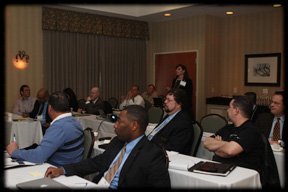Editorial: SBA's role in DoD
/The Small Business Administration Office of Hearings and Appeals (OHA) has denied the NAICS Code challenge to the Air Force’s NETCENTS-2 NetOps and Infrastructure Solutions (Small Business Companion), and affirmed the Air Force’s use of NAICS Code 517110. The difference in the size standard is significant. The appellant asserted the proper NAICS code was 541512, with a $25M size-standard. The RFP was issued under 517110, with a maximum small business size of 1500 employees. The 517110 code stands under the OHA decision. SBA surveyed industry in making its determination, and ultimately, the OHA broadened the definition of NAICS Code 517110 to fit the Air Force’s intentions for use of the vehicle. Alongside recent moves by the SBA to crack down on “bad actors” receiving access to set-aside contracts, this decision seems incongruous.
But is it a bad thing?
It certainly has unpleasant consequences for some small businesses hoping the decision had gone the other way. For the Air Force, it allows them to perform some risk-mitigation once—at the IDIQ level—rather than as a part of each task-order award and still remain in compliance with laws requiring small business participation. The decision also somewhat affirms the Air Force’s cognizance over its requirements, and doesn’t substitute the SBA’s judgment for that of the KO’s, except where it does.
I have been an outspoken advocate of getting the SBA out of the business of national security, and this does nothing to change my opinion. The NETCENTS-2 requirement took over two years to be advertised for competition in part because the Air Force anticipated, and attempted to avoid this very dispute. The SBA has enabled a contentious environment and has become a tool of competitive strategy in the new "wild west" of defense cutbacks and contract protests. When all else fails, roll the dice with the SBA.
Maybe I’m wrong. I invite your opinion. Imagine a world, or at least a DoD, without the monolithic SBA policing its every contractor relationship. Has there been enough education and demonstration of the contribution of small business to innovation, cost competiveness and agility, that the DoD would seek out these firms for the value they provide? What, if any, contribution to the defense of our nation has been achieved by the burdens placed on the DoD acquisition process by the SBA?
I’m not suggesting the DoD doesn’t need small business. What I am suggesting is DoD leadership is savvy enough to: recognize we are essential to the mission, seek out our participation, accomplish successful partnerships with industry, and comply with the F.A.R. in the absence of a watchdog agency adding multiple levels of complexity and additional obstacles to putting pointy things in bad people.
Or do we need another government agency to police the government agency policing the government agencies?
Welcome your comments. You do have to register.
--Lee Moon



